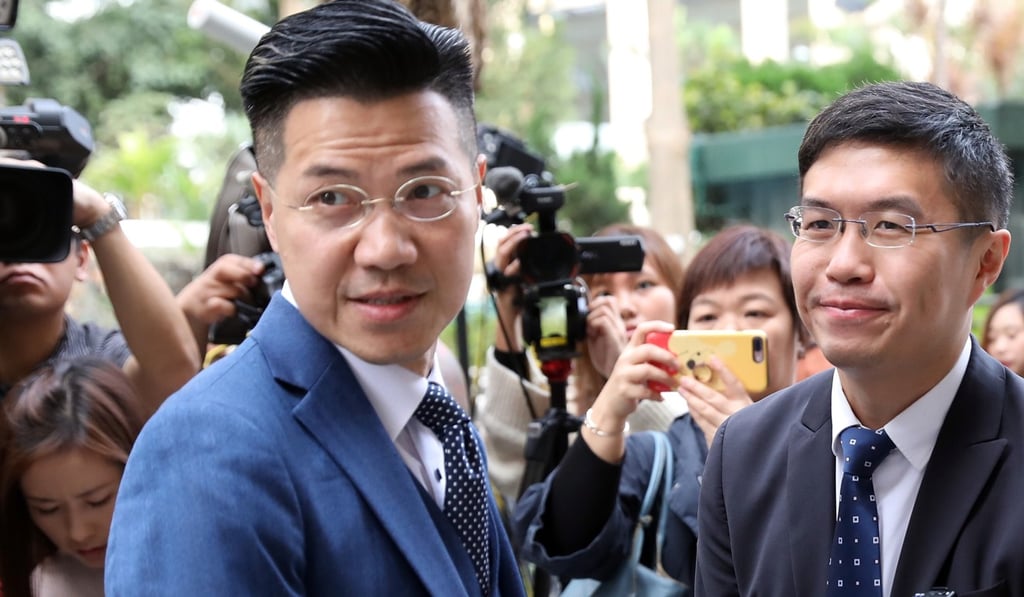Hong Kong district councillors kick off new term with pledge to pursue protesters’ demands amid anti-government movement
- Members in both Sai Kung district, and Central and Western district vote to set up working groups to look into police action in their areas
- Pro-establishment camp, now the minority, forms its own group to monitor use of district resources to prevent abuse for political aims

Members of two district councils under the pro-democracy bloc in Hong Kong have pledged to pursue protesters’ demands amid the anti-government movement, as they held their first meetings following the camp’s landslide victory in recent polls.
Central and Western district as well as Sai Kung district were the first two to hold talks on Thursday following the commencement of the new term of office for councillors on New Year’s Day.
In elections last November, opposition candidates took control of 17 out of 18 districts citywide.
The remaining 15 councils under the camp are expected to make similar moves to press the government to address protesters’ demands at the district level, as the political crisis, sparked by the now-withdrawn extradition bill, continues into its seventh month.
The pro-establishment camp, meanwhile, has set up a group to monitor any abuse of district resources in pushing for political goals.
